Thinking is not a case of spontaneous combustion; it does not occur just on general principles.
JOHN DEWEYMost notable distinction between living and inanimate beings is that the former maintain themselves by renewal.
More John Dewey Quotes
-







-







Arriving at one goal is the starting point to another.
JOHN DEWEY -







Of all affairs, communication is the most wonderful.
JOHN DEWEY -







Education is not preparation for life, Education is life itself.
JOHN DEWEY -







The good man is the man who, no matter how morally unworthy he has been, is moving to become better.
JOHN DEWEY -





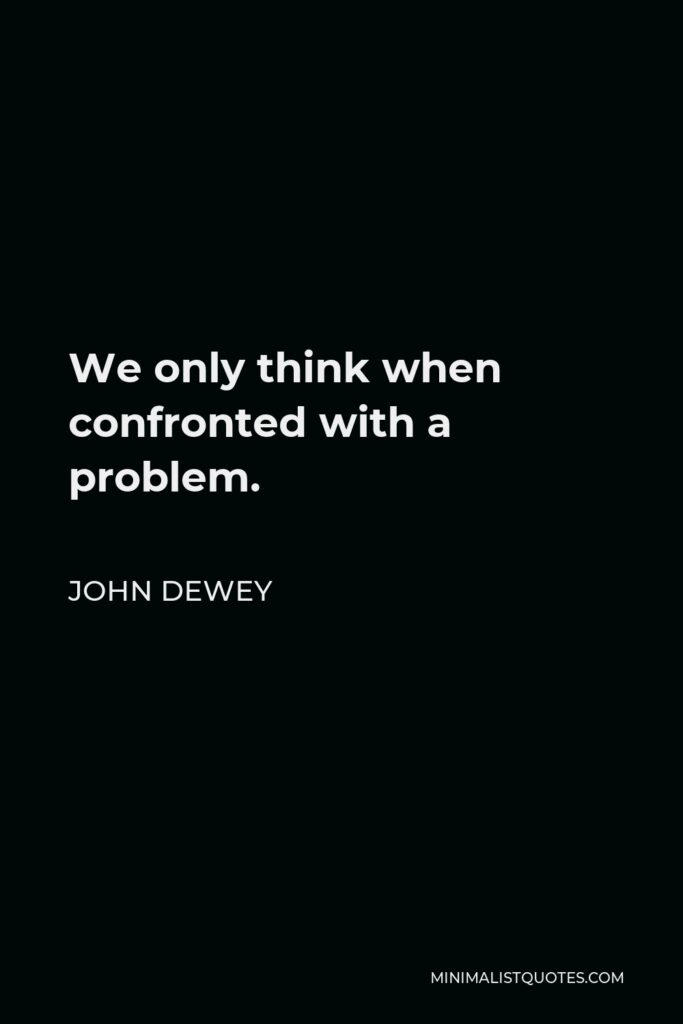

We only think when confronted with a problem.
JOHN DEWEY -







To me, faith means not worrying.
JOHN DEWEY -





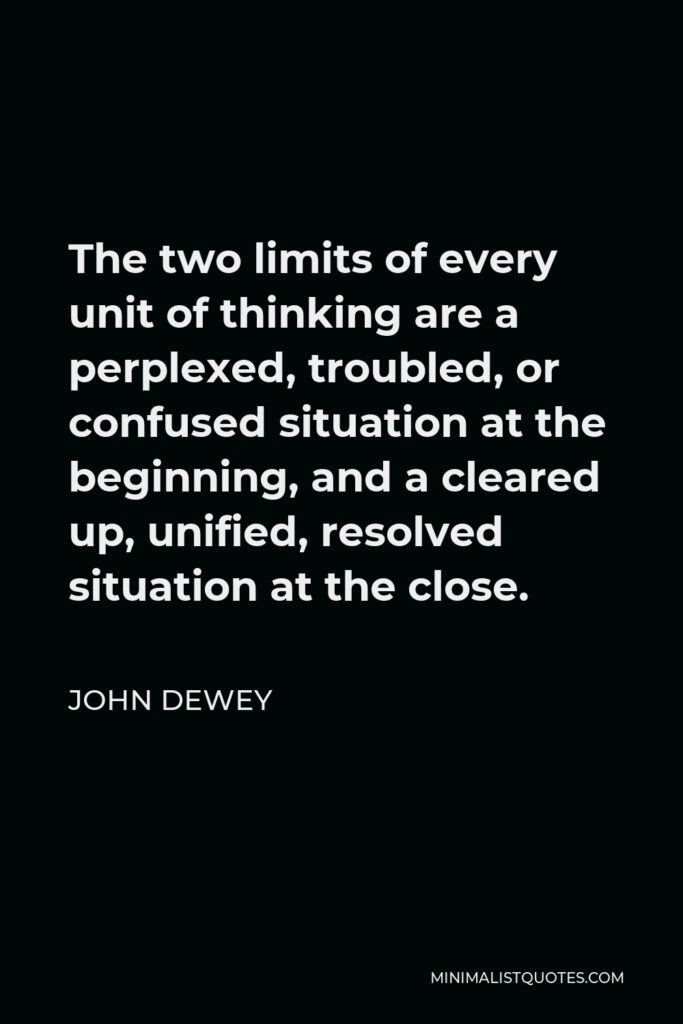

The two limits of every unit of thinking are a perplexed, troubled, or confused situation at the beginning, and a cleared up, unified, resolved situation at the close.
JOHN DEWEY -





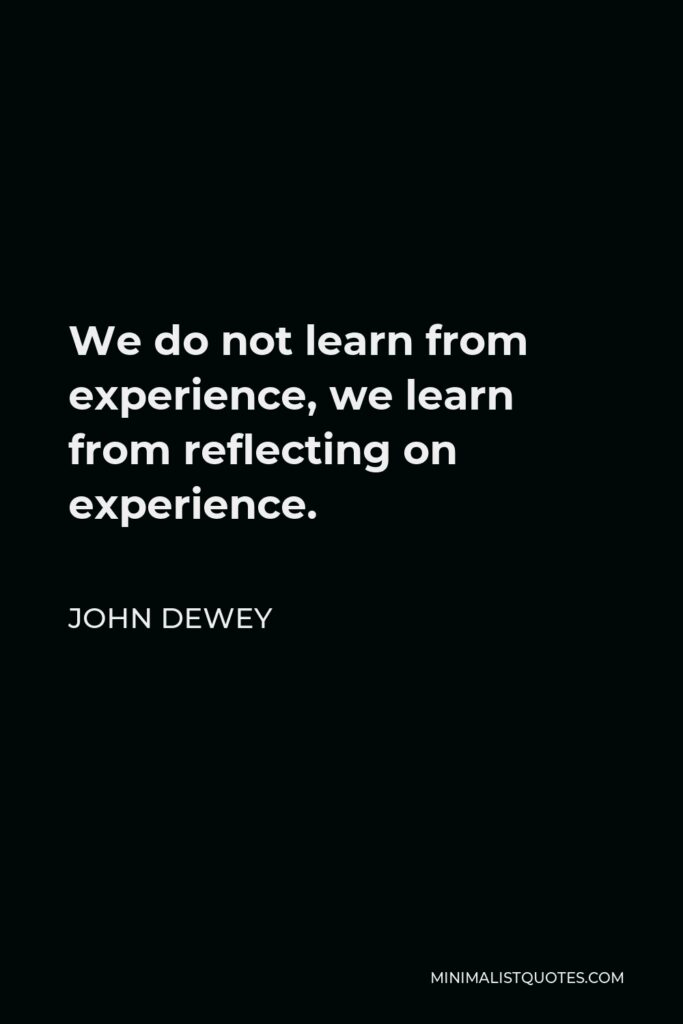

We do not learn from experience, we learn from reflecting on experience.
JOHN DEWEY -





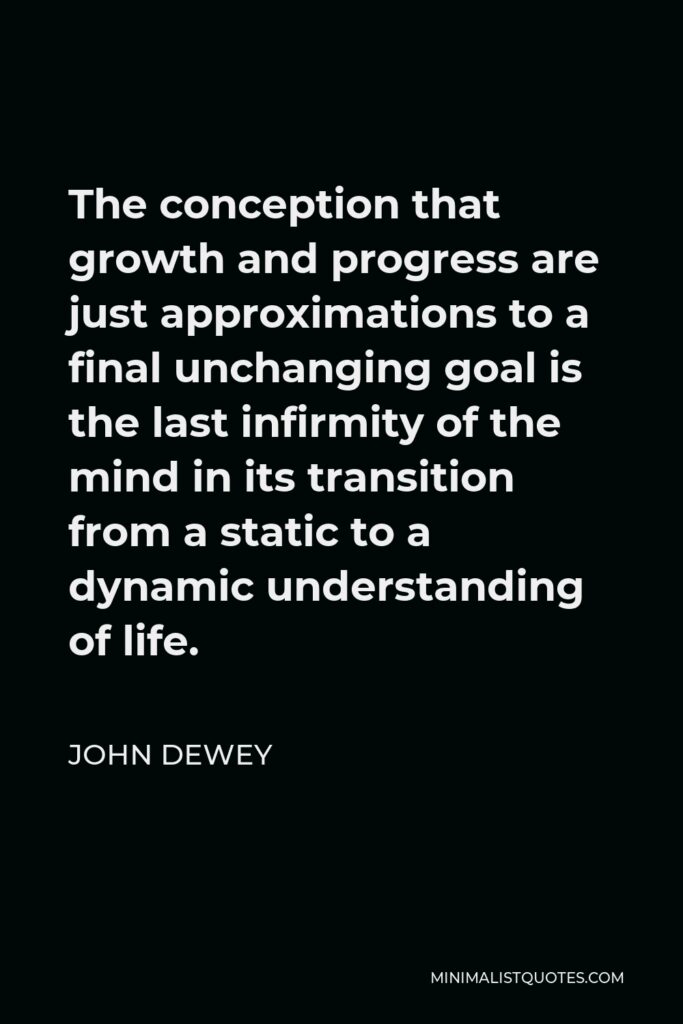

The conception that growth and progress are just approximations to a final unchanging goal is the last infirmity of the mind in its transition from a static to a dynamic understanding of life.
JOHN DEWEY -







The most important attitude that can be formed is that of desire to go on learning.
JOHN DEWEY -





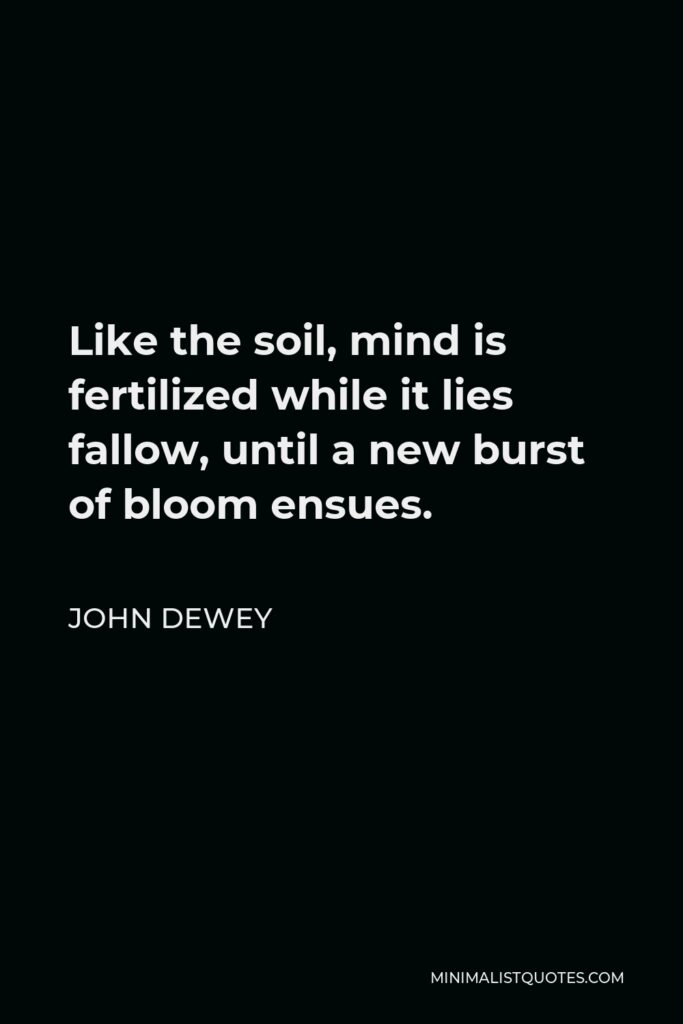

Like the soil, mind is fertilized while it lies fallow, until a new burst of bloom ensues.
JOHN DEWEY -





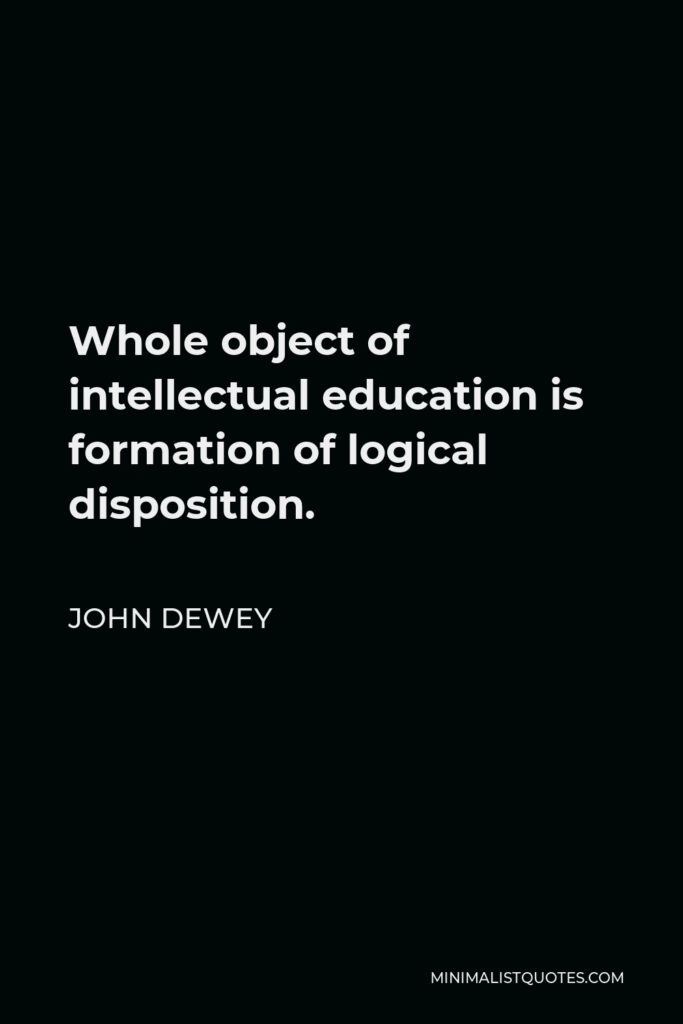

Whole object of intellectual education is formation of logical disposition.
JOHN DEWEY -





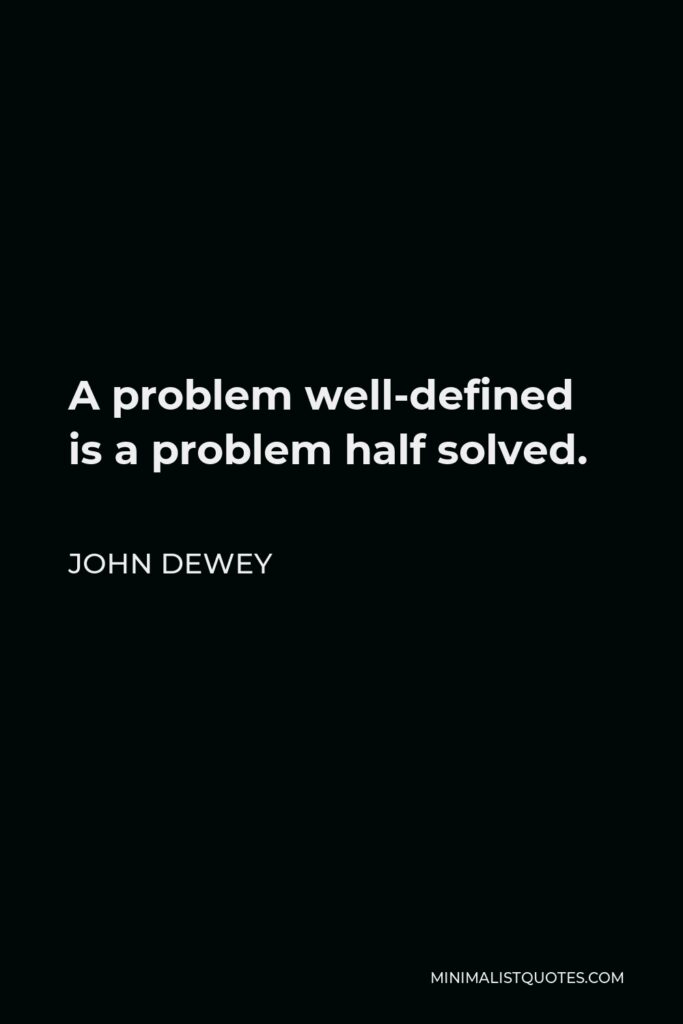

A problem well-defined is a problem half solved.
JOHN DEWEY -







Education is not preparation for life; education is life itself.
JOHN DEWEY -





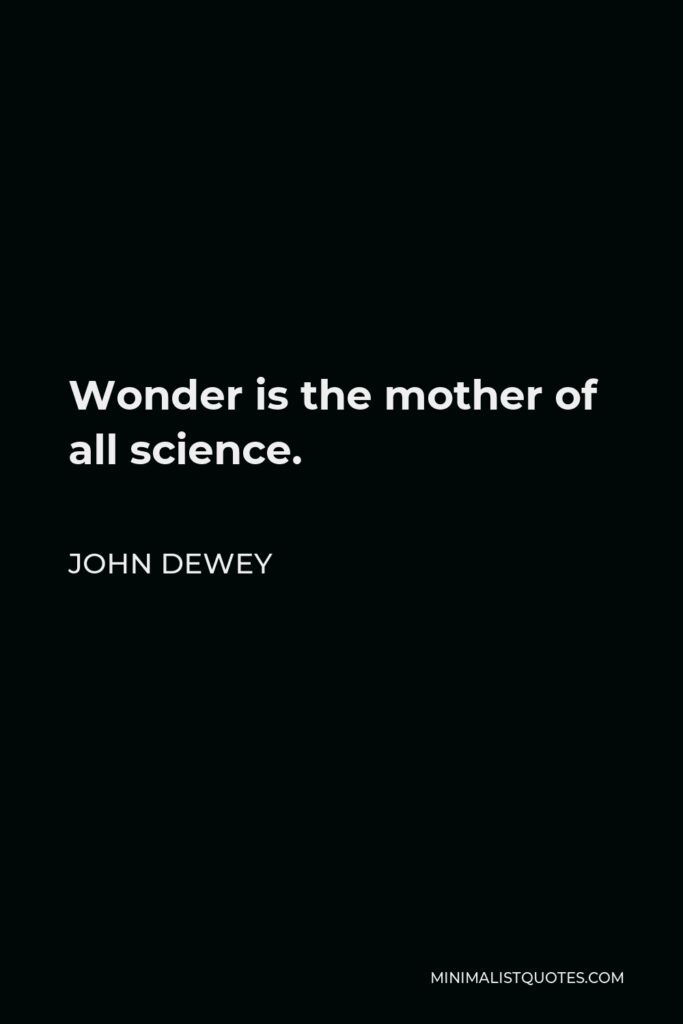

Wonder is the mother of all science.
JOHN DEWEY







